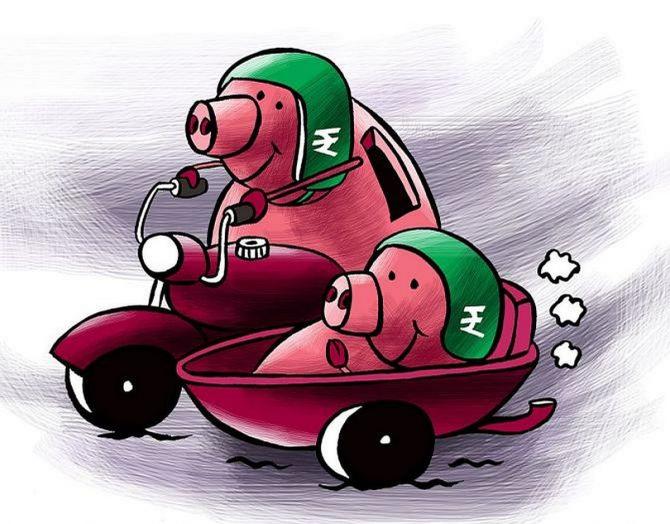
17 of 24 small-cap funds deliver more than 100% returns
The BSE SmallCap index gained 106 per cent in the one year ended May 12, 2021.
The rally in the Indian equity markets in the past year has propelled strong returns in small-cap funds.
Of the 24 small-cap schemes, 17 have given returns of more than 100 per cent in one year.
The top performer in this pack is Quant Small Cap fund, which has given a return of 214 per cent, followed by Kotak Small Cap fund, which has delivered a 132.4 per cent return, shows the data from Value Research.
All the returns are of direct plans.
Vinay Paharia, chief investment officer (CIO) at Union AMC, says: “Returns of small-cap funds look strong due to the low base of last year.
“If we look at the financial year 2020, all the segments of equity markets (large-caps, mid-caps and small-caps) were weak due to the sharp fall in March last year.
“The inherent nature of small-caps is that they are too volatile and give better returns compared to large-caps and mid-caps over a longer duration.”
In the past year, small-cap stocks have seen a tremendous surge largely due to the economic recovery, coupled with the gush of liquidity and expectations of an improvement in earnings in the years to come.
The BSE SmallCap index gained 106 per cent in the one year ended May 12, 2021.
In comparison, the BSE Sensex surged 55.2 per cent, and the BSE MidCap 81.8 per cent during this period.
Strong returns generated by small-cap funds have attracted investors attention and in the past two months, small-cap schemes have seen net inflows.
According to the data from the Association of Mutual Funds in India (Amfi), small-cap funds had witnessed net inflows of Rs 336 crore and Rs 184 crore in March and April, respectively.
Although the amount might not be significant, it indicated a change in the trend.
Before that, in seven of the eight months, the category had seen outflows of about Rs 4,300 crore.
Schemes, such as Nippon India Small Cap Fund and ICICI Prudential Smallcap Fund, have given returns of 119 per cent and 115 per cent, respectively, in one year.
With assets of around Rs 71,700 crore, small-cap funds are among important categories in equity funds.
The 17 funds that gave returns of more than 100 per cent have assets of approximately Rs 56,000 crore, shows the data from Value Research.
But with such huge returns, the mutual fund industry feels that investors having a long-term investment horizon should only enter at current levels.
Sunil Subramaniam, managing director, Sundaram Mutual, says: “I am not saying that small-cap is overheated now but future expectations are already priced in.”
He further explains that investors need to have a five-year outlook as valuations of small-caps have gone up.
“Small-caps are domestic economy sensitive and given the ongoing crises, we have to give the economy some time to get on track,” says Subramaniam.
Investors need to understand that small-cap schemes are riskier than large- and mid-cap schemes and there can be intense volatility over a shorter timeframe.
In the past three years, returns generated by the small-cap category has been 8.73 per cent, lower than the 10.29 per cent and 10.64 per cent delivered by mid-cap and large-cap categories, respectively.
Market participants fear that investors just look at the past short-term returns and enter funds only to get disappointed with returns.
“Investors just look at the past returns but what has happened in the past cannot probably repeat in the future.
“Investors should understand that returns which we look at today can change going forward,” said Suresh Sadagopan, founder of Ladder7 Financial Advisories.
Despite the sharp run-up in small-cap stocks, fund managers believe that some pockets are attractive and can give good returns in the years to come.
“If we look at not only small-caps but even large-caps and mid-caps in our universe of around 180-200 stocks, none of the segments is cheap or expensive at this point and the markets are reasonably efficient across the cap curve today,” adds Paharia.
Source: Read Full Article
